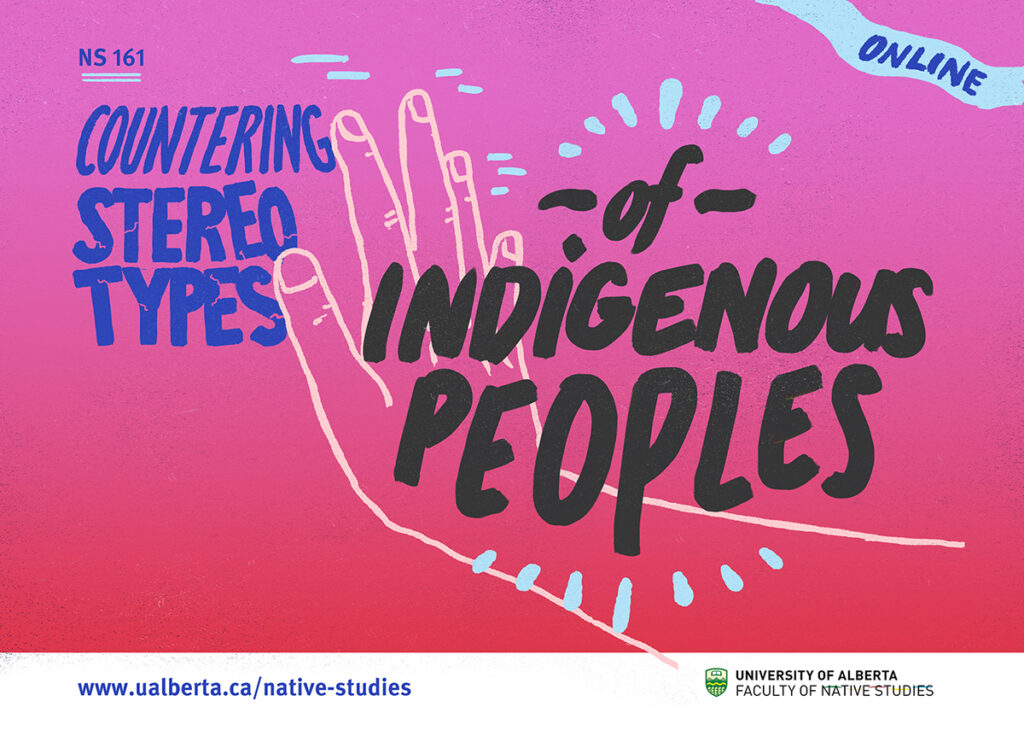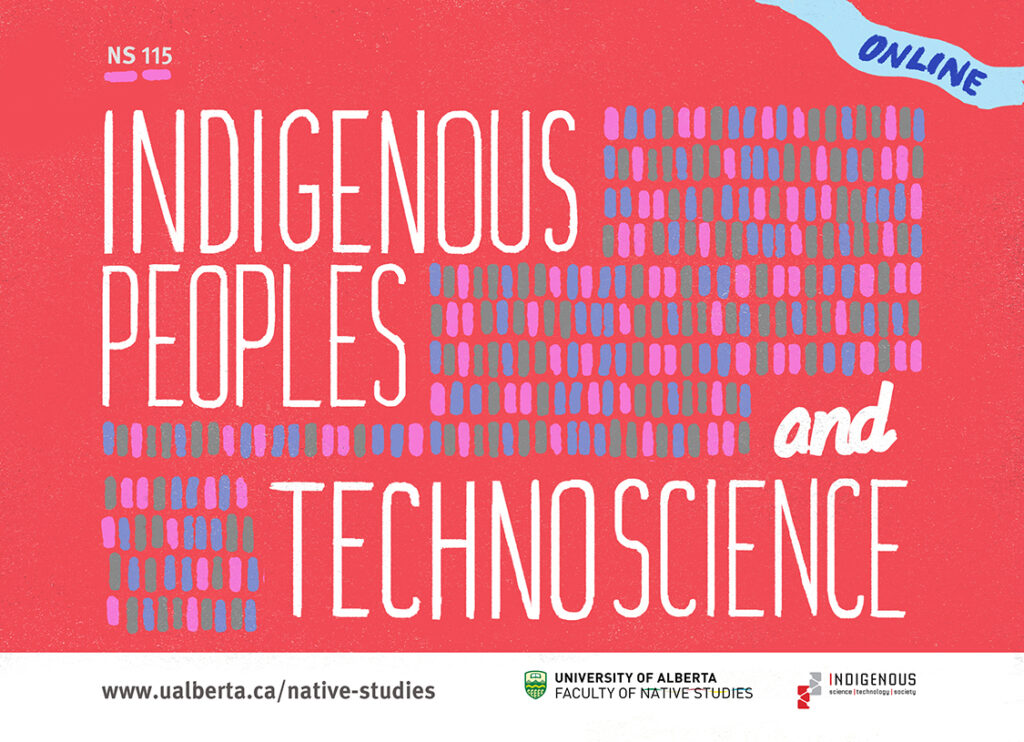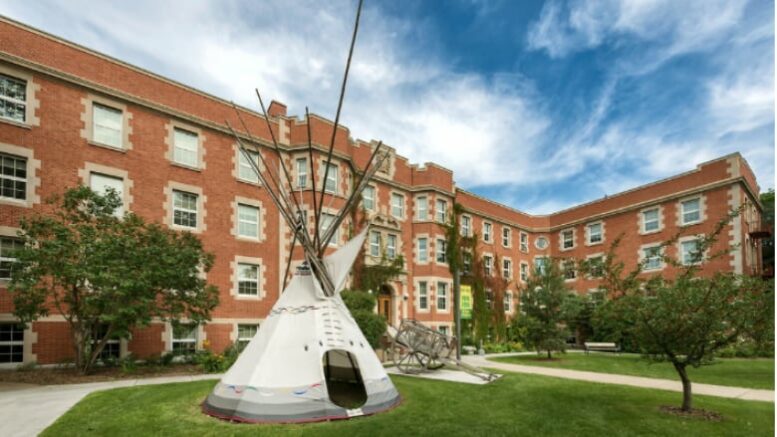By Avery Letendre, Jill Flaman, and Freda Cardinal
(ANNews) Many people have goals to further their education and build new skill sets for their careers, but are working or leading busy lives with many commitments. In other words, there are countless obstacles that can make it difficult to fulfill educational goals! The Faculty of Native Studies has been educating students for over 35 years at the University of Alberta and is the only stand-alone faculty of Indigenous Studies in North America. In recent years, Native Studies has been creating online courses that are more accessible to learners to respond to the demand that students have for flexible learning, without having to travel to the campus.
 Starting in January 2023, winter term, two online courses are available for university credit or for continuing education (non-credit). Award-winning filmmaker, Dr. Tasha Hubbard, known for Two Worlds Colliding, Birth of a Family, and most recently nîpawistamâsowin: We Will Stand Up, has co-created NS 161: Countering Stereotypes of Indigenous Peoples alongside Dr. Savage Bear, Sara Howdle (both at McMaster Indigenous Research Institute) and Molly Swain (Métis in Space podcaster and PhD student).
Starting in January 2023, winter term, two online courses are available for university credit or for continuing education (non-credit). Award-winning filmmaker, Dr. Tasha Hubbard, known for Two Worlds Colliding, Birth of a Family, and most recently nîpawistamâsowin: We Will Stand Up, has co-created NS 161: Countering Stereotypes of Indigenous Peoples alongside Dr. Savage Bear, Sara Howdle (both at McMaster Indigenous Research Institute) and Molly Swain (Métis in Space podcaster and PhD student).
This first year university course pulls the rug out from underneath settler-based constructions of Indigeneity. By taking up the most prevalent stereotypes of Indigenous people, students learn to unpack and challenge the narratives that both skew the lived experience of Indigenous peoples and allow the replication of stereotypes that reinforce colonial relationships. As one student put it, the course “made me think about what I read, see, and hear about Indigenous issues with a different perspective and approach.” Another student commented that the content uncovered things they didn’t know a lot about and, by going through the course, they found they “believed some of the stereotypes.”
 Doing a course online is not without its challenges, but the team teaching approach has been well received because it brings variety to the content and is more connective. In a recent evaluation survey that asked for feedback on the course a student remarked, “I liked the unique voices and styles. It gave the course a community feel.”
Doing a course online is not without its challenges, but the team teaching approach has been well received because it brings variety to the content and is more connective. In a recent evaluation survey that asked for feedback on the course a student remarked, “I liked the unique voices and styles. It gave the course a community feel.”
NS 115: Indigenous Peoples and Technoscience is another fully online course that is now available for registration and also takes a team teaching approach. Co-created by Dr. Kim TallBear (Canada Research Chair, Indigenous Peoples, Technoscience & Environment) and Dr. Jessica Kolopenuk, the course introduces students to the intricate connections between science and technology fields, broader dynamics of colonialism, and increasing demands for Indigenous governance of science and technology. The course is structured by centering Indigenous peoples’ relationships to science and technology fields as “objects/subjects,” “collaborators,” and “scientists.”
Student feedback has been very positive and interest in the course has been strong. One student commented that they found the topic to be unique and inspiring because as “a course about Indigenous scientists and science, not many people are in this field of work and it’s empowering to see the women especially.” Another student remarked that the course “opened my eyes to conceptions of science and how it relates to Indigeneity … it definitely forced me to rethink my relations to genetic information, microbes, and more.”
As Ansh Gulati, (a University of Alberta Political Science student who took Indigenous Peoples and Technoscience) wrote for YouAlberta in October 2021:
“Society constantly reminds us that science is the rational answer to all, that it trumps all other bodies of knowledge, including but not limited to lived experience and interknowledge* (which incorporates academic and community-based knowledge). However, science is not always as objective, rational, or infallible as we are made to believe. Science (environmental, physical, technological, etc.) has a lot of room to grow through interaction with Indigenous ways of knowing. It also has a responsibility to encourage and foster Indigenous autonomy.”
Intrigued? Ready to take action on your educational goals? Whether you would like to pursue a continuing education, a Certificate, undergraduate or graduate degree, the Faculty of Native Studies has pathways available for you. Visit us at www.ualberta.ca/native-studies or email us at [email protected]!



Be the first to comment on "University of Alberta Native Studies has several accessible pathways to learning"